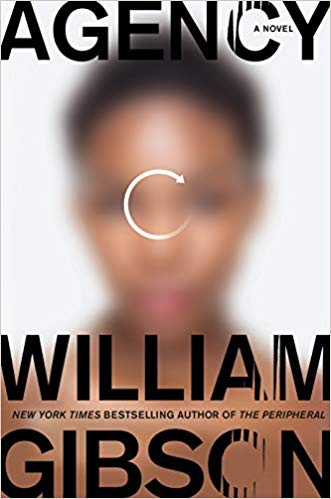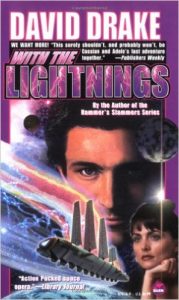
Book Review: Agency by William Gibson
Dear Mr. Gibson,
I love your work. I have been a huge fan ever since someone first handed me a copy of Neuromancer. I even own No Maps for These Territories. And I get that you have always been writing near future, though perhaps with Neuromancer and Johnny Mnemonic we did not realize exactly how near. But now, like Bigend at the end of Zero History, with The Peripheral and especially Agency, we are looking just moments into the future. And I have to tell you, you are killing me. Killing me. When can we expect the next book?
And now onto standard book review format.
Agency is William Gibson’s latest novel. It is set in the same world as The Peripheral, as long as you are willing to understand that “world” should not be taken literally, as it is set in a different place in the time continuum, with a slightly different past and therefore a greatly different future. However, many of the characters from The Peripheral return in Agency. (I think you could read and enjoy Agency without having read The Peripheral, but I cannot say for sure, as I have read The Peripheral.)
In the present timeline in Agency, we meet Verity just as she’s meeting Eunice. Eunice is an AI, but no one knows that yet. On some very simplistic level, Agency is the story of Eunice gaining and claiming her agency. But this is Gibson, so we know that “simplistic” is not the level this book exists on.
In Verity’s world, both the 2016 US election and the Brexit vote went the other way. But that does not mean things are perfect. In fact, this world is on the brink of nuclear war. And being on the brink of nuclear war is what causes Lowbeer, in the same future timeline as in The Peripheral, to get involved in the first place.
I do not want to share much of the plot beyond that because, as with many of his books, Agency could just as easily be categorized as an action/thriller as science fiction. There are plans within plans and agents doing things the primary knows nothing about until their actions bear fruit. There are intricate networks of people acting out of greed, goodness, for the sake of novelty, all manner of motivations, and the only thing that matters is the outcome of their actions.
Agency is about exactly that, taking agency, owning our decisions and their consequences. It is about our ability to listen and learn from other’s experiences. It is about our ability to create friendships and find trust. It is about understanding that our choices create the world we live in just as much as the world we live in creates our choices.
The best part of the book is the world Gibson creates. I would happily go live in Verity’s world, even if I did not get to even know Verity. The worst part of the book is the world Gibson creates. He makes it very clear that he did not create this world, he just imagined a slightly different path. His world is our world, with just a few different choices. And just like in the book, we have the power to alter the path of our future. And that is hard, because sometimes, would it not be nice to just give up our own agency and blame everything on other people?
I give Agency by William Gibson all the stars, all of them. No matter what scale you are rating it on, this book belongs at the top. If you like Gibson, you probably already have this on your radar. If you are not already a fan of Gibson, consider picking up The Peripheral and Agency, or go back and start, like so many of us, with Neuromancer.
If you have any interest in near future, speculative fiction, or even action/spy thriller-type books, you are likely to enjoy William Gibson’s books. Just do not start with the Blue Ant trilogy (Pattern Recognition, Spook Country, Zero History). Those are excellent books, but I think they require complete trust in the author to make it through to the payoff, and if you are not familiar with Gibson, that trust will be missing.
But speaking of trust in the author and long-term payoffs, I have some theories about the technology from the end of Zero History and the technology that makes the various timelines of The Peripheral and Agency possible.




